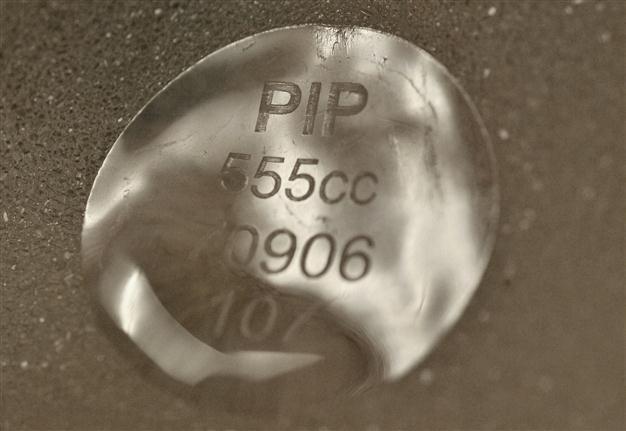Fuel additive used in French breast implants: report
MARSEILLE, France - Agence France-Presse

Close up on a French-made PIP breast implant taken on December 30, 2011 at La Seyne-sur-Mer, south eastern France. AFP Photo
French breast implant manufacturer PIP used an untested fuel additive in its now-banned implants that have triggered a worldwide scare, French radio station RTL reported Monday.RTL said it obtained an exact breakdown of the materials used in the faulty implants, including Baysilone, Silopren and Rhodorsil, all of which are industrial products never tested or approved for clinical use.
The products, used in the oil or rubber industries, allegedly caused the silicone gel implants to have a high rupture rate.
French authorities including health safety agency AFSSAPS already knew that the implants contained industrial rather than medical quality silicone, but this is the first time the use of petrol industry additives has been reported.
"According to the AFSSAPS, it was known that this was an unsuitable gel, usually used in food manufacturing or for computers," a doctor advising implant wearers, Dominique-Michel Courtois, told AFP.
But "there was no way of knowing that the gel contained an additive for fuel. That's why we want implants removed from patients to be analysed themselves," added a lawyer for implant wearers, Philippe Courtois.
AFSSAPS previously carried out tests on implants seized at PIP's factory in the south of France in March 2010.
The lawyer said tests should also be carried out on implants sold abroad, after British media revealed that rupture rates on the PIP products were seven times higher than previously thought.
"The mix (of ingredients) could vary depending on the deliveries," he said.
The now-bankrupt Poly Implant Prothese (PIP) was shut down and its products banned in 2010 after it was revealed to have been using industrial-grade silicone gel that caused abnormally high rupture rates.
Between 300,000 and 400,000 women in 65 countries from Europe to Latin America have implants made with the sub-standard gel.
France last month advised 30,000 women to have their PIP implants removed because of an increased risk of rupture, although officials have said there is no proven cancer risk.
















